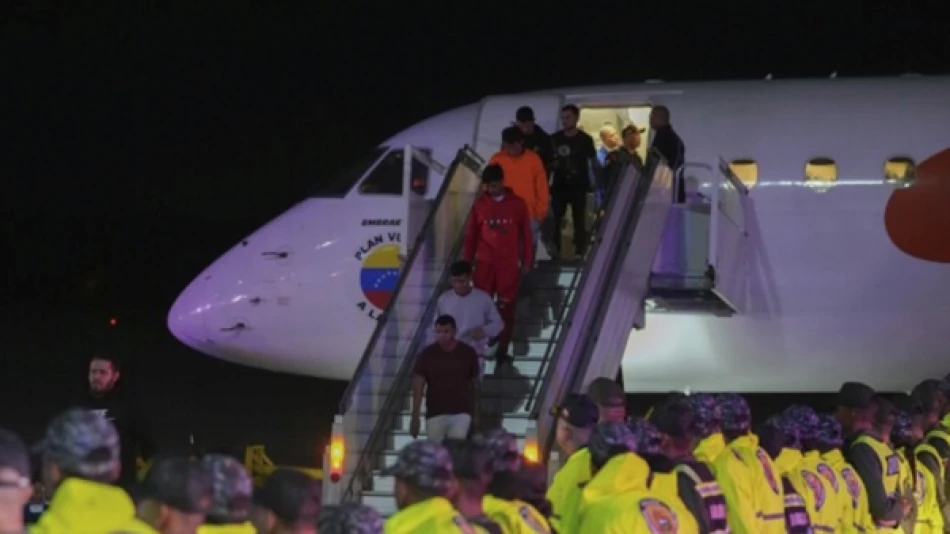
American Prisoners Released from Venezuela Arrive Home in Triumphant Homecoming
Trump's Immigration Crackdown Yields Unexpected Diplomatic Win with Venezuela
In a rare moment of cooperation between Washington and Caracas, Venezuela released 10 detained Americans on Friday in exchange for the repatriation of dozens of Venezuelan migrants who had been deported to El Salvador months earlier under Trump's hardline immigration policies. The prisoner exchange represents a significant diplomatic breakthrough that serves the interests of three nations while highlighting the complex interconnections between immigration enforcement and international relations.
The Human Cost of Diplomatic Tensions
The released Americans arrived at Joint Base San Antonio late Friday evening, with some waving flags as they embraced waiting family members and officials. Their freedom came after what was likely months or years of detention in Venezuelan facilities, caught in the crossfire of deteriorating U.S.-Venezuela relations that have persisted since the Trump administration first imposed sweeping sanctions on the Maduro government.
The identities and circumstances of their detention remain unclear, but American citizens have increasingly found themselves vulnerable to arbitrary arrest in countries with strained U.S. relations, often becoming pawns in broader geopolitical disputes.
A Three-Way Deal Born from Immigration Policy
The exchange's unusual structure reflects the ripple effects of Trump's immigration crackdown. When the U.S. deported Venezuelan migrants to El Salvador rather than back to Venezuela—likely due to the lack of diplomatic relations with Caracas—it created an opportunity for creative diplomacy.
El Salvador, which had proposed this type of exchange months earlier, positioned itself as a crucial intermediary. The arrangement allows the Central American nation to reduce its burden of housing Venezuelan deportees while facilitating a humanitarian resolution between two larger powers.
Strategic Wins Across the Board
For President Nicolás Maduro, the deal provides a rare diplomatic victory at a time when his government faces international isolation and economic pressure. Successfully negotiating the return of Venezuelan citizens demonstrates his administration's ability to protect its diaspora and engage constructively on the international stage.
Trump achieves a key campaign promise of bringing detained Americans home—a politically valuable outcome that resonates with his base and demonstrates his administration's commitment to protecting U.S. citizens abroad.
The Broader Context of Hostage Diplomacy
This exchange fits into a troubling global pattern where authoritarian governments detain foreign nationals to gain leverage in international negotiations. Countries like Iran, Russia, and China have similarly used detained Americans as bargaining chips, forcing Washington into difficult choices between humanitarian concerns and broader policy objectives.
The Venezuela deal suggests that even the most strained bilateral relationships can find areas for cooperation when mutual interests align, particularly around humanitarian issues that transcend ideological differences.
Immigration Policy as Foreign Policy Tool
The arrangement also demonstrates how domestic immigration enforcement can become entangled with international relations in unexpected ways. By initially deporting Venezuelans to El Salvador rather than their home country, U.S. immigration authorities inadvertently created the conditions for this three-way diplomatic solution.
This precedent could influence how future administrations handle deportations involving countries with severed diplomatic ties, potentially viewing such situations as opportunities for broader diplomatic engagement rather than purely administrative matters.
While the immediate humanitarian crisis has been resolved, the underlying tensions between Washington and Caracas remain unchanged. However, this successful exchange may provide a template for future cooperation on specific issues, even as broader political and economic disputes continue to define the bilateral relationship.
Most Viewed News

 Layla Al Mansoori
Layla Al Mansoori






